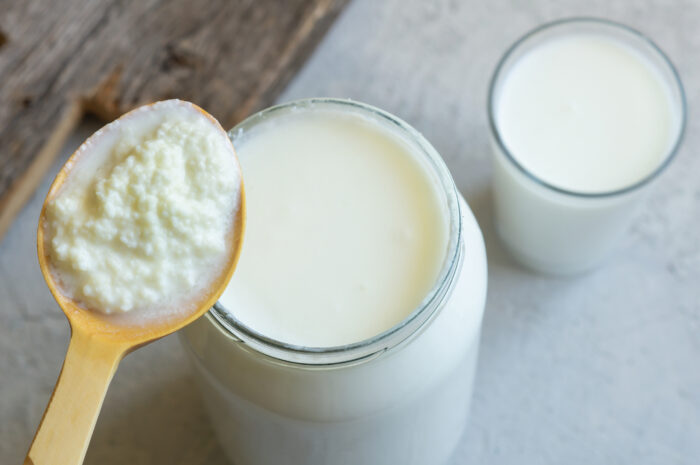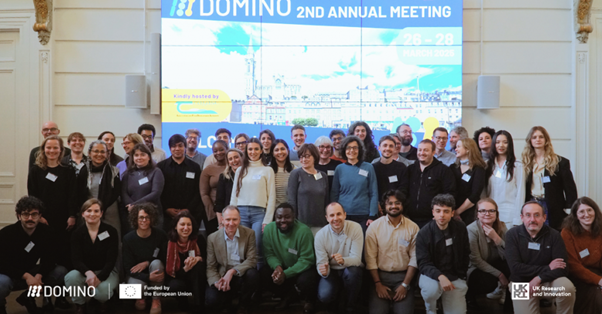Milk kefir – a role in supporting gut health?

Have you ever heard of milk kefir? It is a fermented dairy drink, a bit like thin yoghurt, that has been enjoyed for thousands of years. Now, Irish researchers are exploring how it might support gut health in ways we are only beginning to understand.
At the Teagasc Food Research Centre in Moorepark, scientists led by Professor Orla O’Sullivan, Professor Paul D. Cotter and Dr. John Kenny are part of a major European research project called DOMINO. Their goal? To find out how milk kefir affects the gut microbiome, the community of trillions of bacteria, viruses and other microbes living in our digestive systems.
So, what is the gut microbiome and why does it matter?
Our gut is home to an entire ecosystem of tiny organisms that help us digest food, regulate our immune system and even affect our mood. While many people have heard about the good bacteria in our gut, fewer know about the gut virome, especially phages, which are viruses that infect bacteria.
These phages play a huge role in shaping the gut ecosystem, but they are hard to study. That is where this project comes in.
What the research looks like
As part of the DOMINO project, 122 volunteers across UK, France and Italy are taking part in a clinical trial. For six months, some drink 200 ml of milk kefir every day, while others drink a placebo (a similar drink with no active microbes).
Researchers collect samples from the participants each month, including stool, blood and urine, and analyse them using a series of methods, including advanced DNA sequencing. The aim is to track how milk kefir affects the gut microbiome and gut viruses, especially in people with or without metabolic syndrome, a group of conditions linked to high blood pressure, blood sugar and cholesterol.
Why milk kefir?
Milk kefir is packed with natural probiotics, the live microbes that are good for your gut. While previous studies have shown health benefits from fermented foods, this research digs deeper, focusing on how milk kefir changes the gut, including its viral population.
What this means for you:
- For consumers, this work may support what many already believe: eating fermented foods like kefir, yoghurt or sourdough bread can help with digestion, metabolism and immunity.
- For farmers and food companies, it looks for real scientific evidence behind the health claims of fermented dairy products, encouraging the development of new gut-friendly foods.
- For scientists, it offers a rare look at how diet, microbes and human health are all connected, especially the lesser-known viral side of our gut.
European collaboration with strong Irish leadership
The DOMINO project brings together leading European research institutions, with coordination from INRAE (the French National Research Institute for Agriculture, Food and Environment) and strong Irish leadership from Teagasc, which also serves as vice coordinator. Teagasc researchers work closely with partners at Imperial College London and the University of Naples. In March 2025, all project partners gathered in Cork to share progress and plan next steps.

Photo Caption: Researchers from across Europe gathered for the DOMINO Annual Meeting in Cork, March 26–28, 2025. Credit: Anne Groleau-Brunat, DOMINO Project Manager
Want to learn more?
To learn more, visit the DOMINO Project webpage here.
More from Teagasc Daily: Teagasc researchers bringing protein measurement into the 21st century
More from Teagasc Daily: Can fish oil finally taste good and do more?
Featured image source: iStock
